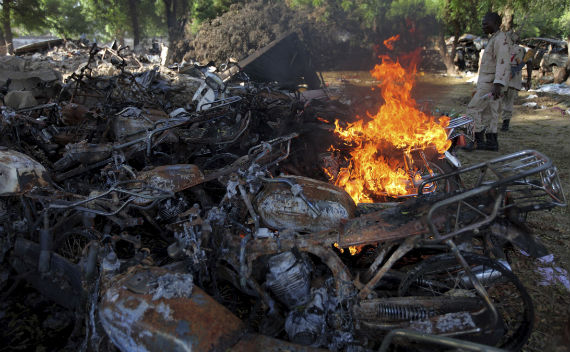Boko Haram Attacks Continue
More on:

Boko Haram, a radical Islamic group, is continuing its attacks on Nigerian police and other official installations. Yesterday, police in Maiduguri reported the group killed two church officials. Late last week, Boko Haram launched three bomb attacks and gunfire in Maiduguri. Then, on June 6, in the same city, a gunman murdered a prominent Islamic cleric who has criticized Boko Haram.
Boko Haram has also claimed responsibility for a series of bombings following the inauguration of President Goodluck Jonathan as well as the killing of the Shehu of Borno’s brother. (The Shehu is considered the most important traditional Islamic ruler in northeast Nigeria.)
While apparently small in number, with the North’s poverty and alienation from Abuja, it may be gaining popular support and appears to have the potential to become a popularly based insurrection.
Already, Boko Haram’s resurgence has proven its resilience. Last year, its leader, Mohammed Yusuf, was murdered by the police in cold blood in the aftermath of its bloody attacks on policemen and the military, which left eight hundred people, mostly Boko Haram members, dead.
Boko Haram can be roughly translated as ‘Western education is evil,’ suggesting it rejects the ‘modernity’ associated with western education. It seeks to establish Islam throughout Nigeria and to destroy the secular government in Abuja as well as condemning the traditional Northern, Islamic establishment as "non-Islamic." The group also advocates Islamic justice for the poor and appears to have a millenarian dimension. Though there is little information about it, its membership appears to include high school and university students.
While Boko Haram appears to be able to operate elsewhere in the North, Maiduguri seems to be the center of its activities, at least at present. The city is in the far northeast of Nigeria, on the edge of the Sahara, with traditional ties across the Sahel as far as Khartoum. It is one of the oldest centers of Islam in Nigeria and in the past it has been receptive to various Islamic sects and movements.
The city has also long been a center of trans-Sahara trade – and smuggling. Its reputation for extreme poverty is probably exaggerated, though it is cited all over West Africa as the source of beggars.
The Shehu of Borno, northeastern Nigeria’s preeminent traditional Islamic ruler, is generally regarded as second only to the Sultan of Sokoto among the Islamic emirate hierarchy. However, unlike the Sultan, so far as I can tell, the Shehu has not been discredited with his people and has avoided overt support for the ruling People’s Democratic Party.
I did a short background video on Boko Haram, which you can watch below.
http://www.youtube.com/watch?v=RA0dQoAWBSU
More on:
 Online Store
Online Store
